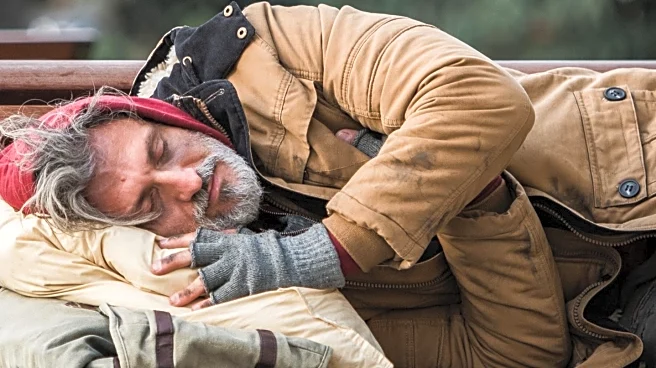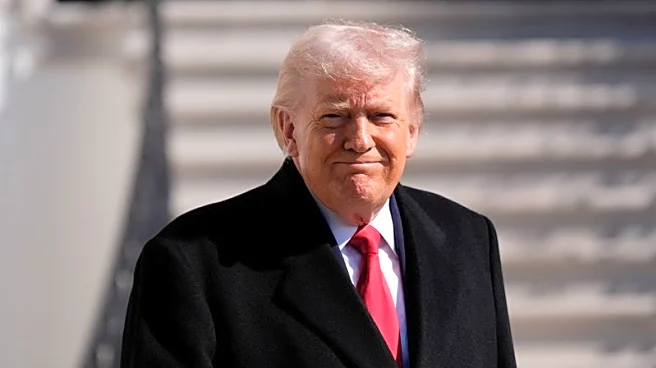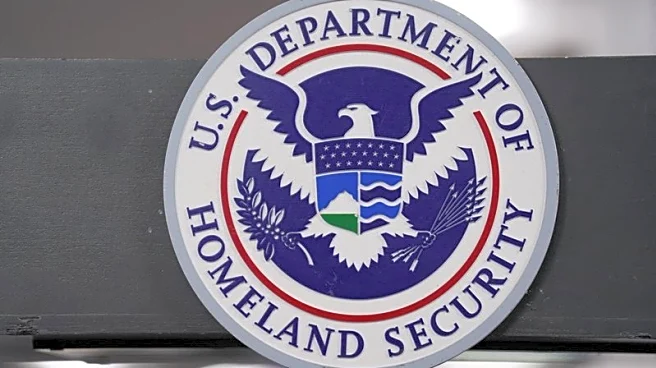What's Happening?
The concept of 'poverty porn' has evolved in the digital age, with social media platforms now playing a significant role in its proliferation. Leah Goodridge, a New York City attorney and tenant advocate, highlights how images of unhoused individuals are often used as 'rage bait' on social media. This content, which was once intended to evoke empathy through charity commercials, now frequently serves to incite anger or ridicule towards homeless people. The shift in narrative is part of a broader societal trend where homelessness is not only visible but also exploited for emotional reactions online. Goodridge discusses how this phenomenon is intertwined with legal and societal frameworks that often marginalize and mock those in need.
Why It's Important?
The portrayal of homelessness on social media as 'poverty porn' has significant implications for public perception and policy. By framing unhoused individuals as subjects of ridicule or anger, these narratives can perpetuate stigma and hinder efforts to address homelessness constructively. This trend may influence public opinion, potentially affecting policy decisions and resource allocation for homeless services. The use of such imagery can desensitize viewers to the real challenges faced by unhoused individuals, reducing empathy and support for meaningful interventions. As social media continues to shape societal narratives, understanding its impact on vulnerable populations is crucial for fostering a more compassionate and effective approach to homelessness.
What's Next?
Addressing the issue of 'poverty porn' on social media requires a multifaceted approach involving policy changes, advocacy, and public education. Stakeholders, including social media companies, policymakers, and advocacy groups, may need to collaborate to develop guidelines that prevent the exploitation of vulnerable populations online. Raising awareness about the harmful effects of such content could lead to more responsible media consumption and sharing practices. Additionally, legal reforms may be necessary to protect the rights and dignity of unhoused individuals, ensuring they are not further marginalized by digital narratives.
Beyond the Headlines
The ethical implications of 'poverty porn' extend beyond immediate social media interactions. This trend reflects broader societal attitudes towards poverty and homelessness, highlighting the need for cultural shifts in how these issues are perceived and addressed. By challenging the narratives that dehumanize unhoused individuals, society can work towards more inclusive and supportive solutions. The conversation around 'poverty porn' also underscores the importance of media literacy, encouraging individuals to critically evaluate the content they consume and share.











